Orisha is not evil! – advocates call for recognition of faith's role in emancipation
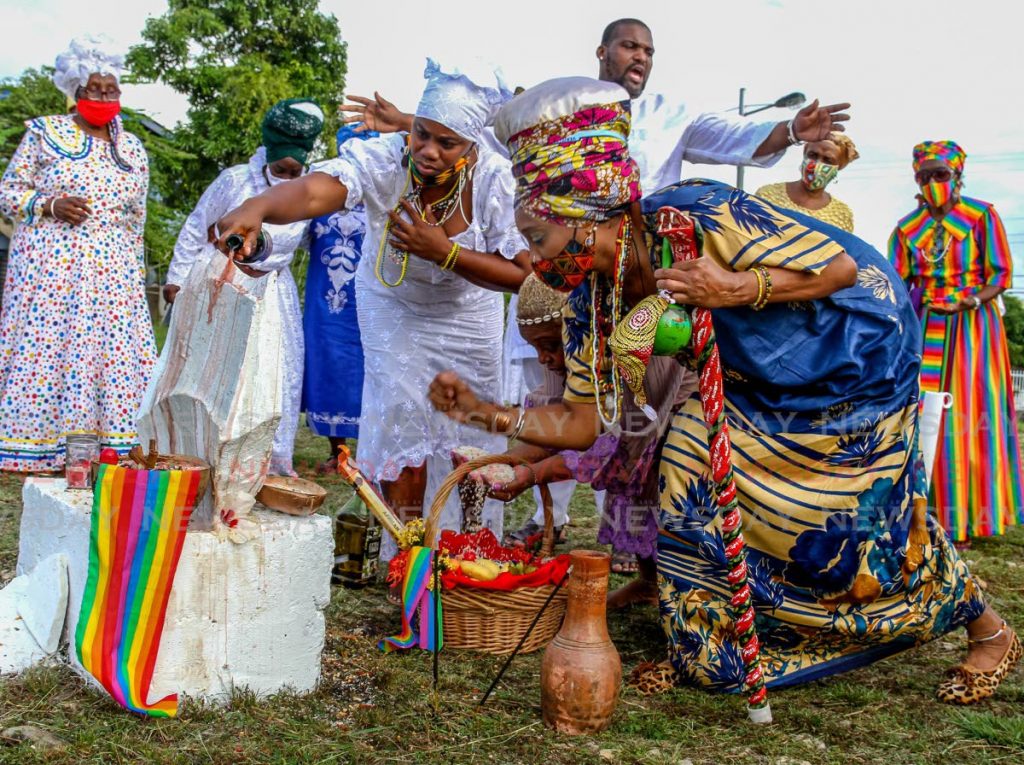
ORISHA priest Michael Osouna believes the time has come for the Orisha faith to be given the recognition it deserves, since it was the spirit of the orishas that guided the Haitians to revolt in 1804, triggering the movement to free African slaves across the world, decades later.
Osouna said the Orisha faith, which originated among the Yoruba of Nigeria and other west African countries, is a “way of life” that should be celebrated, especially on Emancipation Day, when the abolition of slavery in the English-speaking Caribbean, in 1834, is observed.
“In Haiti they call Orisha voodoo. The first country to be liberated from slavery was Haiti. There are different aspects or representations of Orisha. The ancestors' forces and the orishas were used in Haiti under the terminology of voodoo to acquire emancipation.”
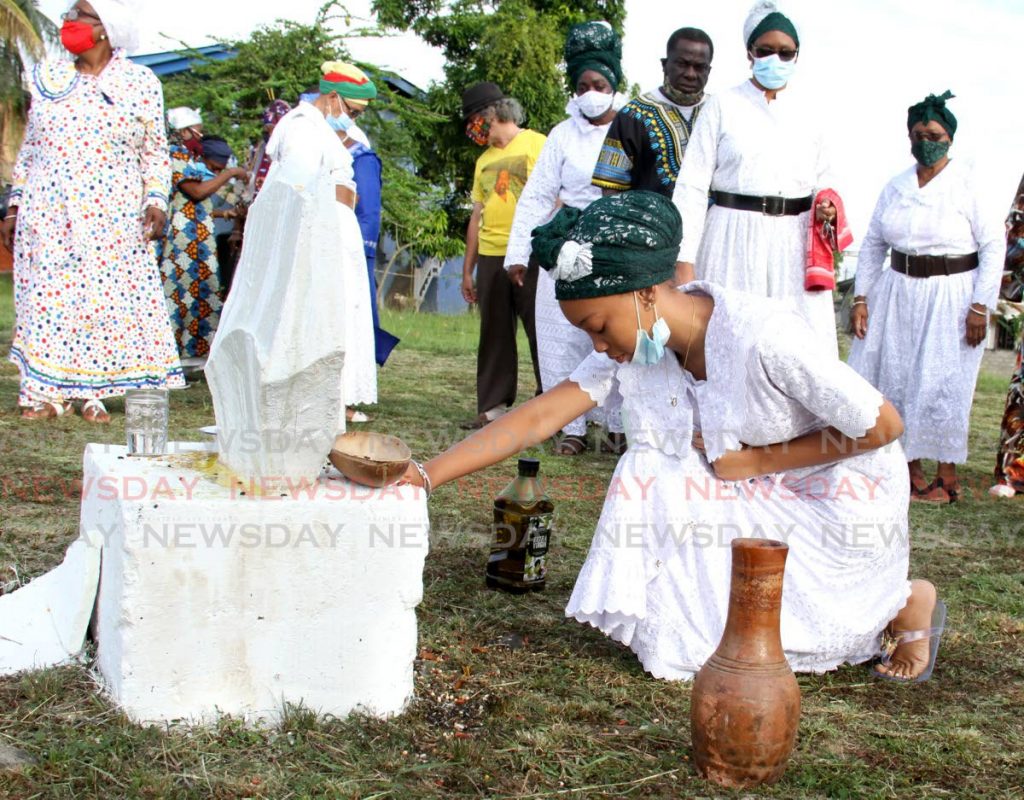
Osouna, known to most as calypsonian Sugar Aloes, said the Orisha faith, which is separate from the Spiritual Baptist religion, is about honouring African ancestors and praising the orishas or deities.
“Yes! One hundred per cent,” he said, in answer to if more should be done to explain the role the orishas played in bringing freedom to slaves.
His call for recognition was agreed to by head of the Emancipation Support Committee Zakiya Uzoma-Wadada.
She said over the years, there have been various African groups calling for the recognition of certain festivals in the Orisha faith such as the Shango festival.
“They believe that we should have a holiday that recognises at least one of the festivals linked to Orisha. I do think that if there is to be a holiday then the Orisha community should come together and make a case and put forward that case and that rationale.”
She added: “The Spiritual Baptist case was based on the amount of torture because of how they expressed their religion in a particular way. I am sure the Orisha suffered the same fate. The strength and organisation of the Spiritual Baptist community is not the same as the Orisha community.”
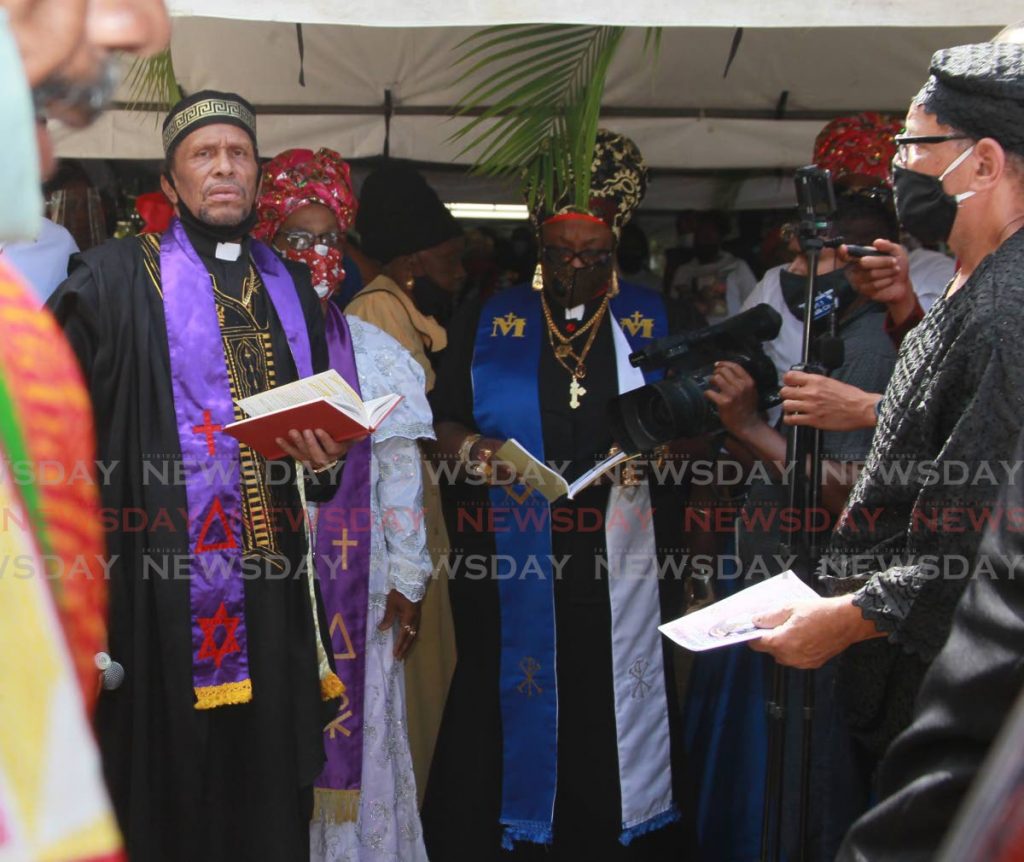
The lack of unity and support for the Orisha faith stems from followers not unifying and making their case as a unified voice, she said. Regarding the Emancipation Support Committee advocating for the recognition of Orishas, she said the committee is a non-religious organisation promoting all things African. She said any call for a holiday should be done by the Orishas.
Osouna agreed that Orishas should unite in order to achieve their goals. He said the Orisha Square, near the Besson Street Police Station, Port of Spain, is not enough to honour the ancestry, and the role slaves, who practised the faith, played in the resistance to slavery. The square was commemorated to honour the Yoruba (a plaque on the square lists the spelling as Yarraba) community who settled in the Laventille area.
Both Osouna and Uzoma-Wadada agreed that the way of life for Orishas was demonised so the recognition it deserves is replaced with scorn and ridicule.
Osouna said: “Orisha is not evil; it is what you use it for. If you use voodoo, in Haiti to emancipate yourself from slavery, is that bad or evil? Slavery was evil!”
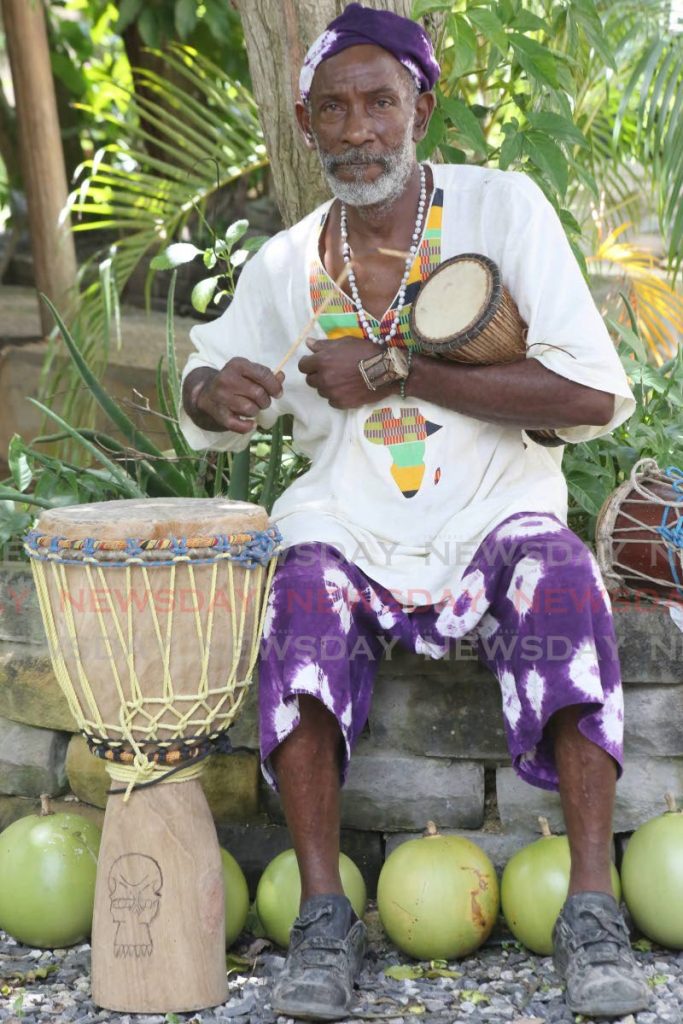
On this, Uzoma-Wadada said, “Haiti has been demonised and deliberately so. These upstarts who defeated the French Spanish and British armies could not be seen as heroes. They had to be demonised. Voodoo played a role in the emancipation movement because they believed in the spiritual energy and that spiritual energy helped them to conquer their enemies.”
She said emancipation stories should include the impact of Orisha/voodoo on emancipation. She said understanding the spiritual power of the African religion was something she encourages.
Both Osouna and Uzoma-Wadada stressed that while Orishas have a close relationship with the Spiritual Baptist community, they are two separate entities with Baptists identifying as Christian-based while Orishas follow the Yoruba pantheon.
Osouna clarified: “There is no such thing as Shango Baptist. Shango is an Orisha deity. He is the god of thunder and lightning. You ask him for relief from your problems.”
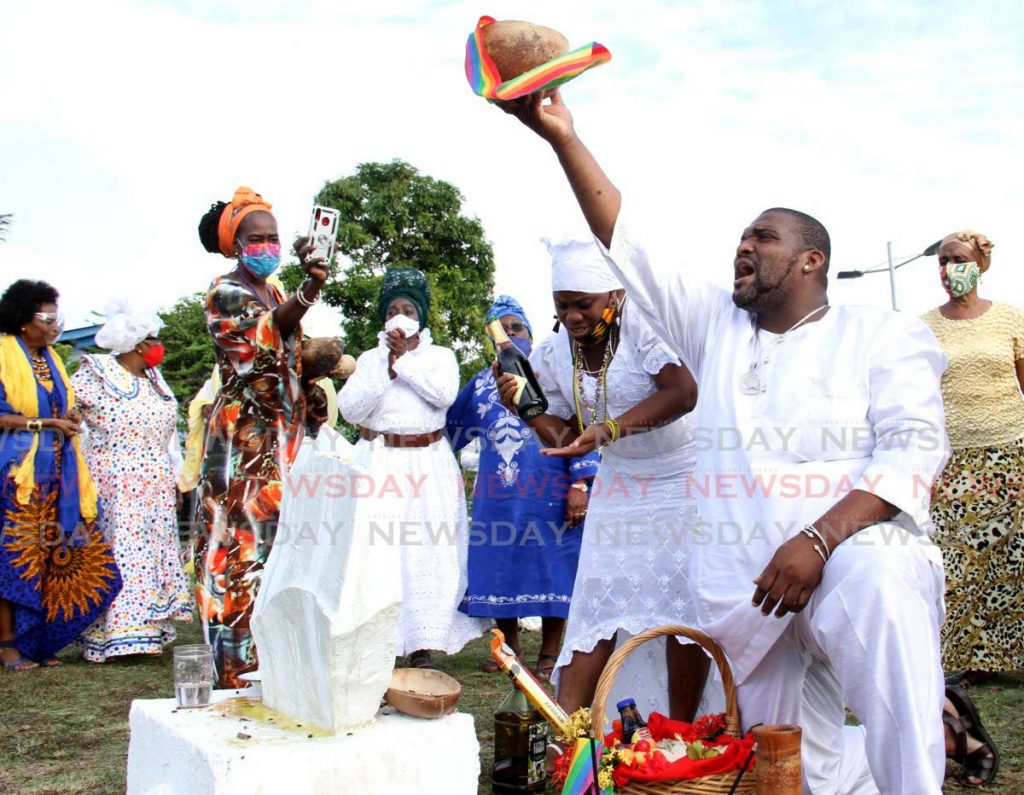
He added that over the years people confused the Orishas with the Baptists. Orishas offer sacrifices of food and animals to their gods and honour their ancestors. He said the Spiritual Baptist is a fusion of Catholicism and traditional African practices, but both faiths use drums heavily in their worship.
Secretary of the Council of the Orisha Elders Neal Rawlins agreed that the Orishas need to be commemorated; he disagrees with the call for a public holiday.
“You have to consider the cost of shutting down the country. There was an application years ago for a Shango day because Shango is the deity governing TT, but I don’t think a holiday is what we need.”
Rawlins said he wrote to the Prime Minister in 2019 for Orisha to be recognised just as with Spiritual Baptists, Catholics, Muslims and other faiths. He said a better act will be for a day to be declared for Orishas to celebrate their tradition, preferably in August to coincide with Emancipation Day, but not a national holiday.
On a visit to an Orisha place of worship at Miles Trace, Febeau Village, San Juan, caretaker, Wayne “Lion” Osouna, said had it not been for the pandemic, the place would have been bustling with activity.
Lion, as he prefers to be called, is Osouna's brother. He spoke about the parlay (place of worship) called Ile Isokan which means House of Unity. Just outside the ancestral shrine is a devotion spot for three deities – Ogun, the god of iron, Ochosi, the hunter and Esu, the gatekeeper and divinity of choice. Usually the night before Emancipation Day, said Lion, there would be prayers and offerings with those in attendance sharing a meal.
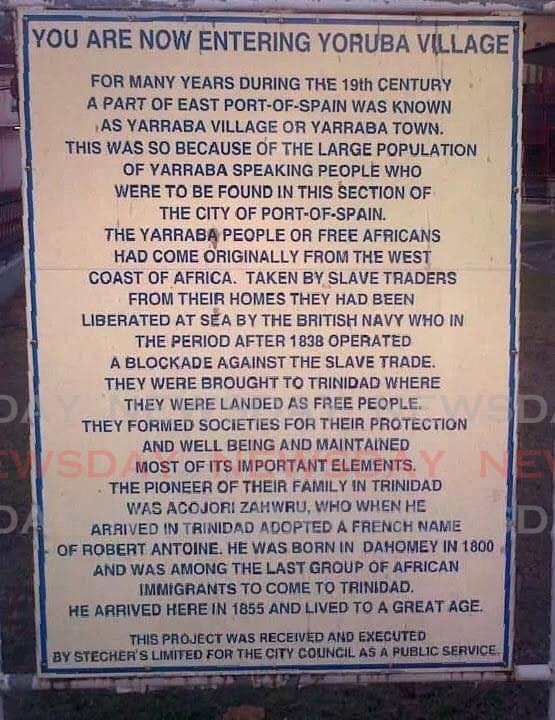
On his vision for the Orishas in TT, Osouna, said he wants them to have their own common property where they can rear animals for sacrifices instead of buying them at inflated prices. He said the property would also be a space to teach about the history of Africa before slavery.
“Emancipation parade is about singing and dancing in African wear, but are you truly emancipated?” he asked.
Rawlins said for him, Emancipation Day today lacks the spirituality that it needs.
“Something is missing. The spiritual aspect has been pushed out. There needs to be more substance to it,” he said.
Uzoma-Wadada, a former principal of Abiadama Centre for Lifelong Learning, the now defunct Orisha school, said through education the country can recognise the faith and its history.
“I believe that through education we can pay homage to the Orisha faith for the significance they played in our emancipation. It’s not that we are trying to be evangelists and convert people but to inform them of the teachings of the Orisha faith.”
Today marks 183 years since slaves were freed and 36 years since the day was declared a public holiday in TT. Only this year, the US celebrated the abolition of slavery with June 19 – Juneteenth – being declared a national holiday.


Comments
"Orisha is not evil! – advocates call for recognition of faith’s role in emancipation"